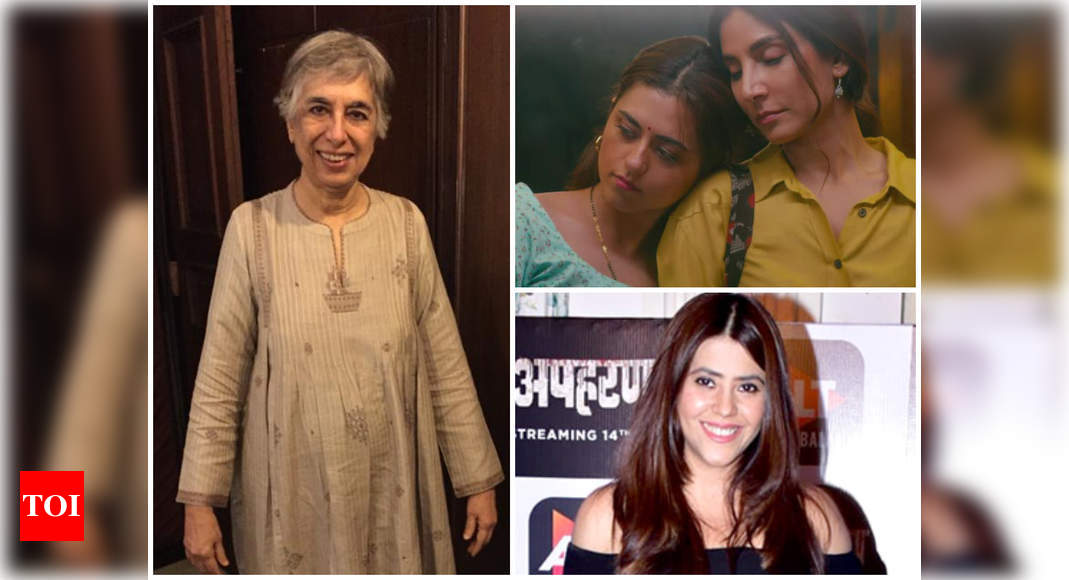Exclusive Interview! ‘The Married Woman’ author Manju Kapur: My books are a reflection of society from a woman’s point of view – Times of India
How does it feel that another one of your books has been turned into a series?
I don’t have first thoughts as such but when they sent me a little promo video of two minutes, I thought to myself, ‘Wow, this is really beautiful’. I’m so pleased. The two minutes that I got to see were pretty faithful to the book.
What is your take on novels being converted into movies and shows?
Many novels are converted into movies around the world. If it is well done, it surely makes a mark. I want a lot of readers to be exposed to my work, through whichever medium possible. When you go to watch a movie, you do get to explore a totally different medium for a story already created. And if you are like me, you will go back and read the book, because your interest has been piqued. You have a visual in your mind, which you don’t necessarily have when you read the book.
My books have very minimal descriptions of people but there’s more description of their emotions, what they’re saying, and what the situation is. When you watch a movie, you see it translated into a visual medium with a whole other dimension that obviously brings in a different style of storytelling. A book comes to life when turned into a movie.
Most of the time films change the endings. Do you feel it does justice to a book?
You cannot control a work of art beyond a certain point. This is meant to happen to keep in check with the generation we live in. For example, if you read about King Lear of the 19th century, people thought he was too sad, so when they made it, they gave it a happy ending. You might be messing with the text but it answered the need of the audience of that time period. Every audience is going to have their own take on it, as it answers the need of the age.
When you write a book and keep it for the public domain, you are not really the master of it anymore. You may not like what is done, or you may think it’s not true to the text but others are going to receive it differently. Speaking from a writer’s point of view, I want my book to be alive as long as possible.
As an author, how much are you involved in the screenplay?
I am not involved at all. Moreover, I don’t want to be involved; Screenplay demands a lot of time, and it’s group work. I chose not to invest or be involved because when I finish writing one book, I am well into my next one. As a writer, I like working alone. Hence, I am totally fine by not being a part of it.
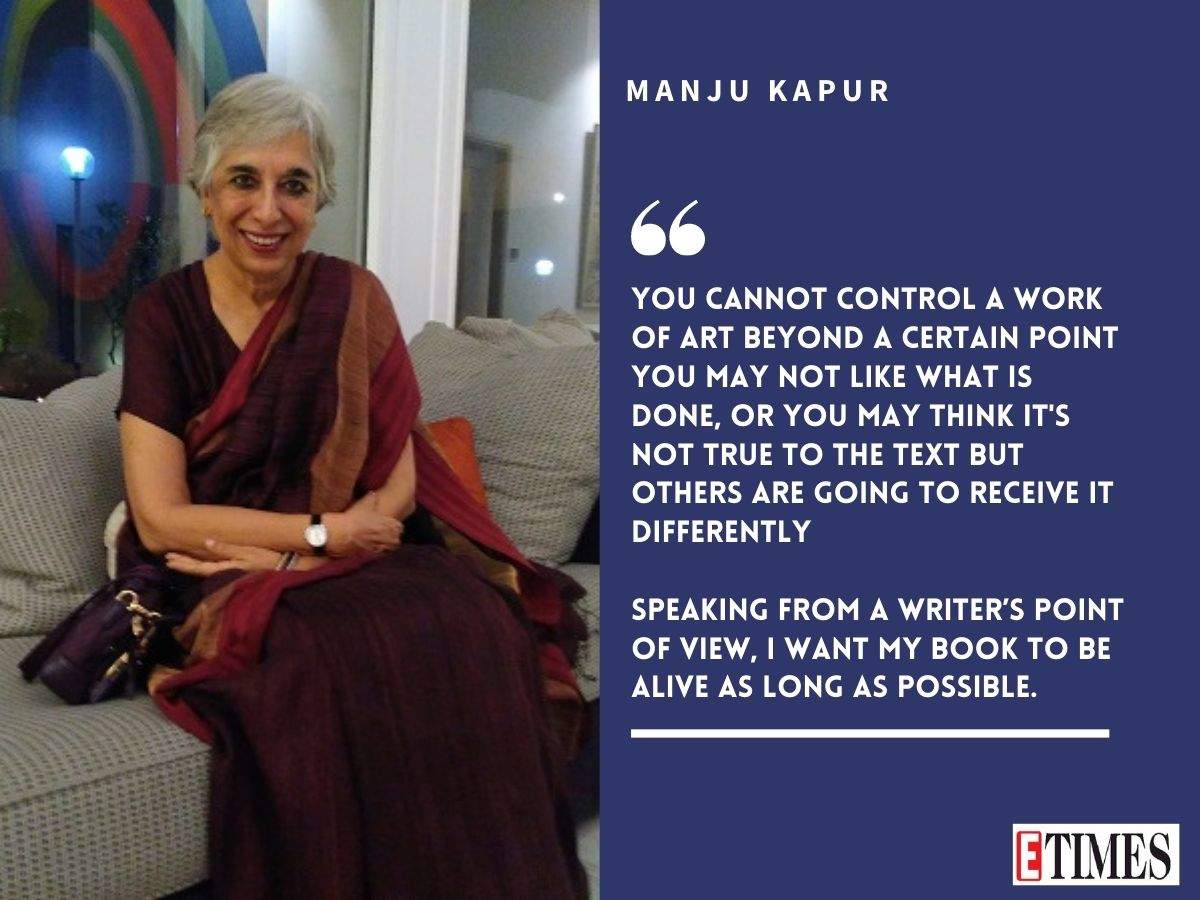
Does that mean, you allow them to take creative liberties too?
Well, I guess their concerns are commercial. I am sure if anybody wants to make anything, they would at least make sure to not lose the essence of the story.
While writing books now, do you write from the point of view that it might be adapted for screen?
Absolutely not. How can I write an effective novel if I have anything else in mind, apart from a novel. It is just the story, the vision, in my head. I don’t have a ready-made story, but I do have a theme in mind. As I write, the characters change; halfway through they might behave differently and I have to revisit the characters to make them consistent. Every time I do a revision of my book, I see something more to fix. I can’t think of it being converted and write for that.
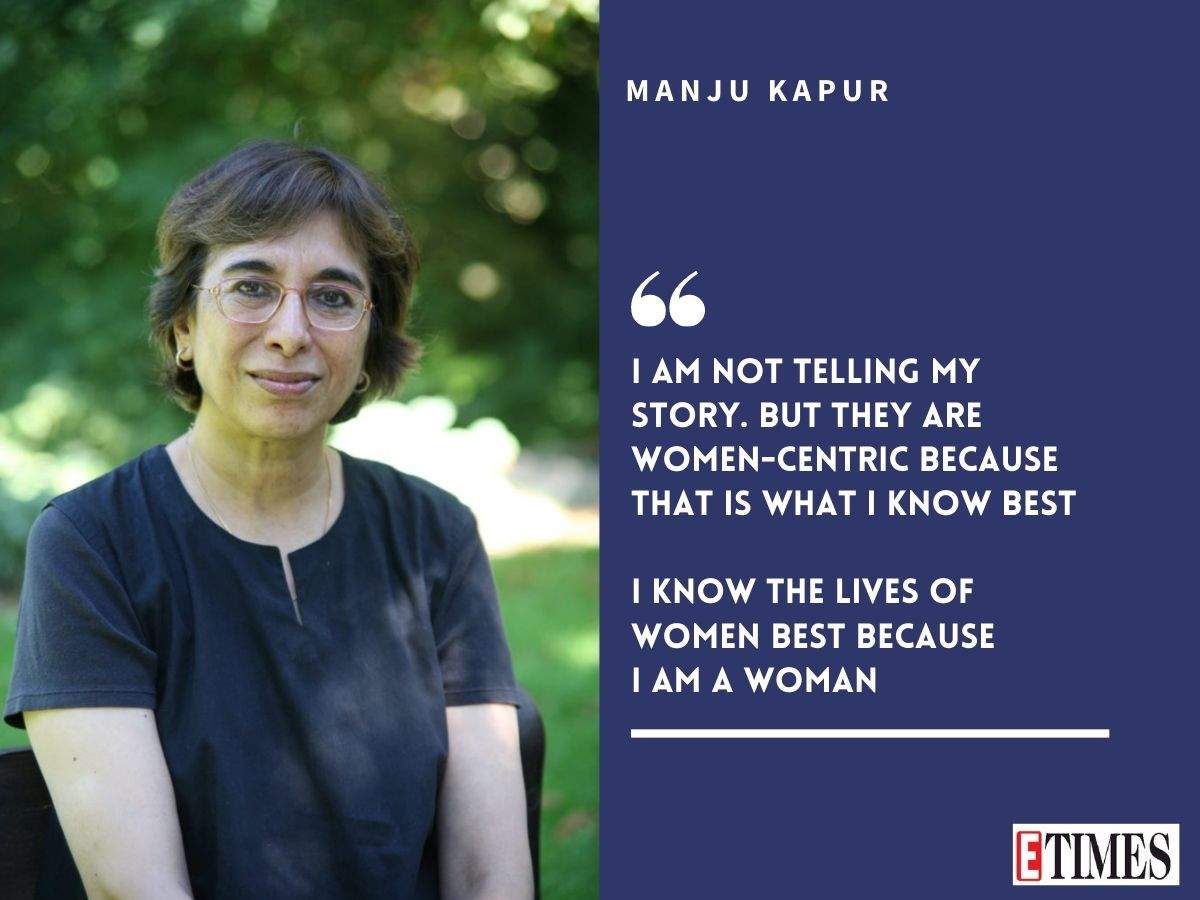
Your books and stories are mostly women-centric. Does that come from personal experiences?
They are not personal. I am not telling my story. But they are women-centric because that is what I know best. I know the lives of women best because I am a woman. I have daughters, I taught in a Women’s college for almost 30 years. This is what I know, from the inside. In ‘Difficult Daughters’, my theme revolved around how education doesn’t play more of a role in women’s life choices. I had no idea of the story I was going to write because I’m not very imaginative that way. And, in fact, the first draft and the last draft of the novel are vastly different, because I’m just groping my way through. My books are a reflection of society from a woman’s point of view.
Your favourite movie adaptation of a book…
I shouldn’t be confessing this, but I don’t really watch them. I don’t read my interviews either or watch myself on TV. I don’t watch film adaptations.
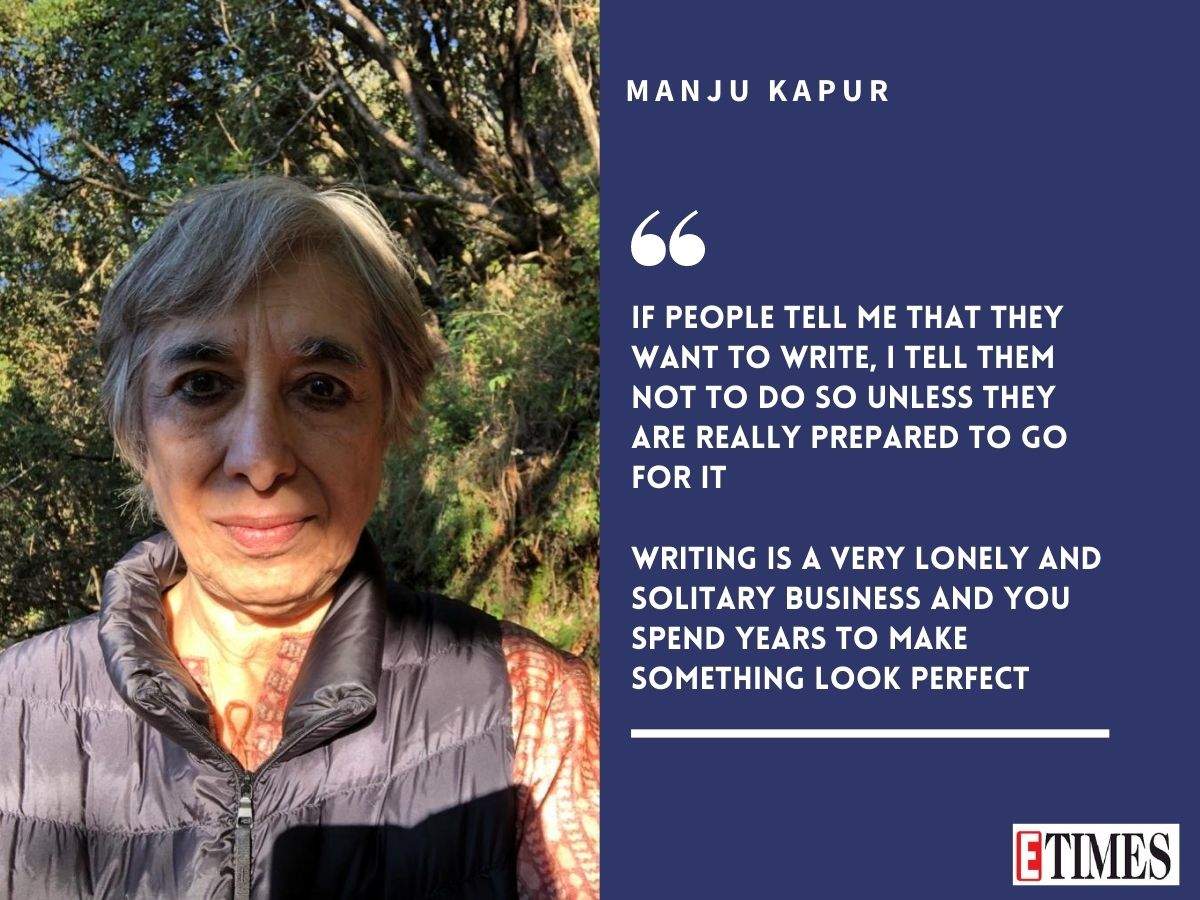
One message for aspiring authors and writers…
Writing is a long, hard business. In fact, if people tell me that they want to write, I tell them not to do so unless they are really prepared to go for it. Writing is a very lonely and solitary business and you spend years to make something look perfect. Honestly, I never wanted to be a writer because when I taught English literature I was on a pedestal, I thought I could never even aim to attain that artistic perfection or the literary brilliance that I admired. I really grew into being a writer.
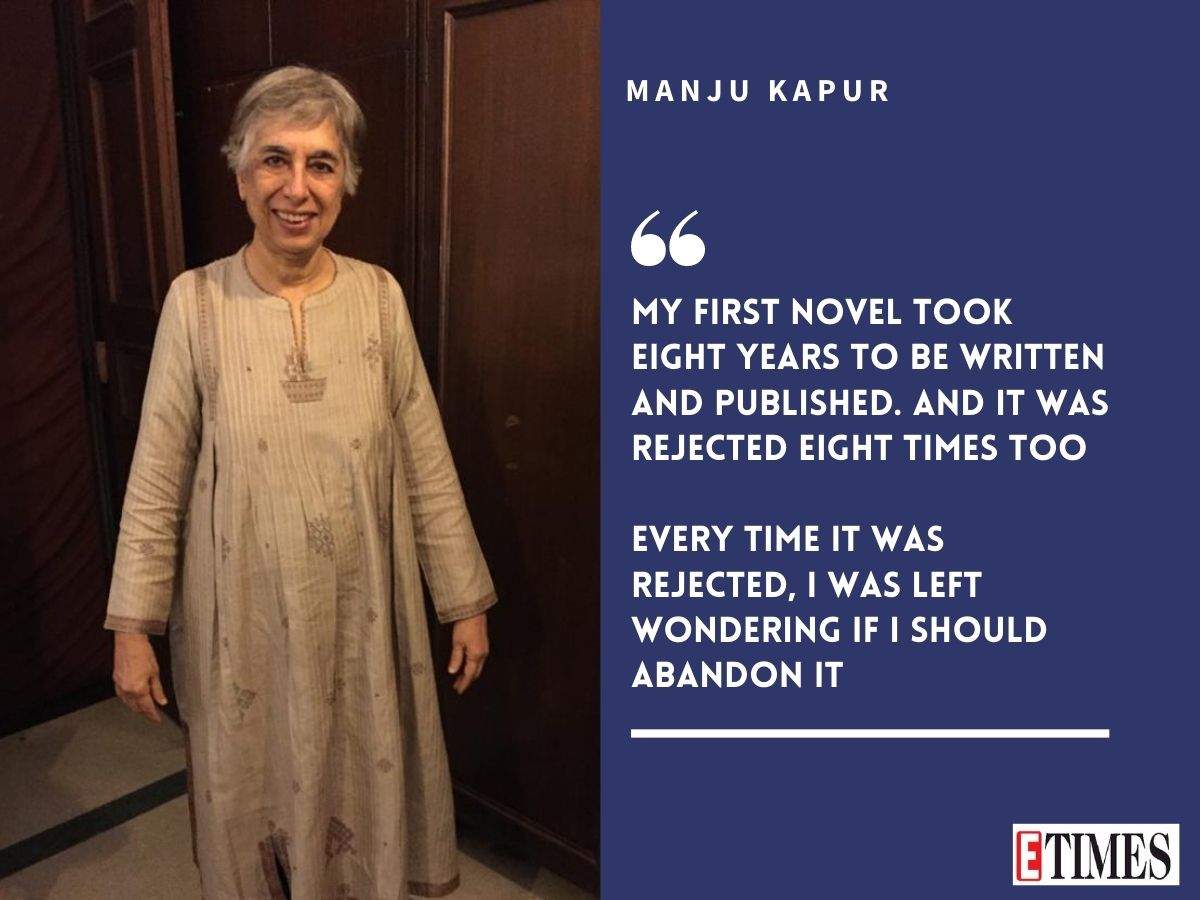
My first novel took eight years to be written and published. And it was rejected eight times too. Every time it was rejected, I was left wondering if I should abandon it. Somewhere down the line, I just became stronger, as it allows me to express what I am. And living here in India, in Delhi, I am not just living but experiencing the lives of the women around me, with words.

